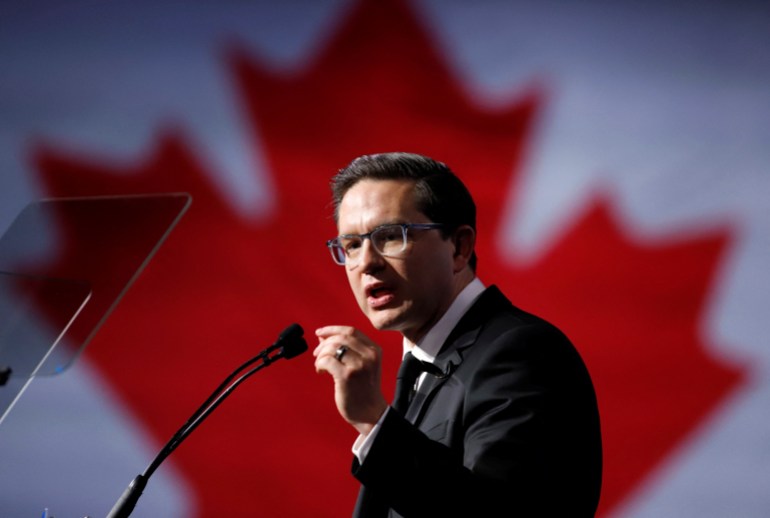No-confidence motion fails to pass in House of Commons, but Justin Trudeau faces more challenges ahead.
Justin Trudeau has survived a no-confidence vote in Canada’s Parliament, the latest test for the embattled Canadian prime minister, who has seen his popularity plummet in recent years.
Legislators voted 211-120 on Wednesday to defeat a motion by the opposition Conservative Party that declared a lack of confidence in Trudeau’s minority Liberal government.
“Today was a good day for the country because I don’t think Canadians want an election,” said Karina Gould, the senior Liberal lawmaker in charge of government business in the House of Commons.
The vote came just weeks after the left-leaning New Democratic Party (NDP) announced its abrupt withdrawal from a 2022 agreement to prop up Trudeau’s government, a move that left the Liberals more vulnerable to a no-confidence measure.
The prime minister, who has been in power since 2015, has seen his popularity plummet amid soaring costs of living and a deepening housing crisis.
His Liberal Party also lost two special parliamentary elections this year – in Toronto and Montreal – heaping pressure on Trudeau to step down as leader.
He has so far rejected that possibility, saying he plans to stay on until the next election, which must be called before the end of October 2025.
“We know that we have a lot of work to do to regain the confidence of people … across the country,” Trudeau said earlier this month after the Liberal candidate lost the Montreal by-election.
Recent polls show Trudeau and the Liberal Party far behind the Conservatives, led by Pierre Poilievre.
Poilievre has been pushing for an early election, attacking Trudeau for what he said was a failure to address soaring costs of living, the housing crisis and crime.
The promise of Canada, “after nine years of Liberal government, is broken”, Poilievre said during a House of Commons debate on Tuesday.
But other opposition parties, whose support is needed to bring down the Liberals, have pushed back against his right-wing agenda.

Despite surviving Wednesday’s no-confidence vote, Trudeau faces more challenges ahead.
The leader of the Quebec nationalist Bloc Quebecois, Yves-Francois Blanchet, said earlier in the day that he would work to bring down the government unless it quickly agreed to the party’s demands.
That includes increasing old-age security for elderly Canadians, among other things.
Poilievre also promised to keep trying to bring down the government, with the next opportunity to be presented next week.
If that fails, the Conservative Party leader will have a few more chances before the end of the year.

